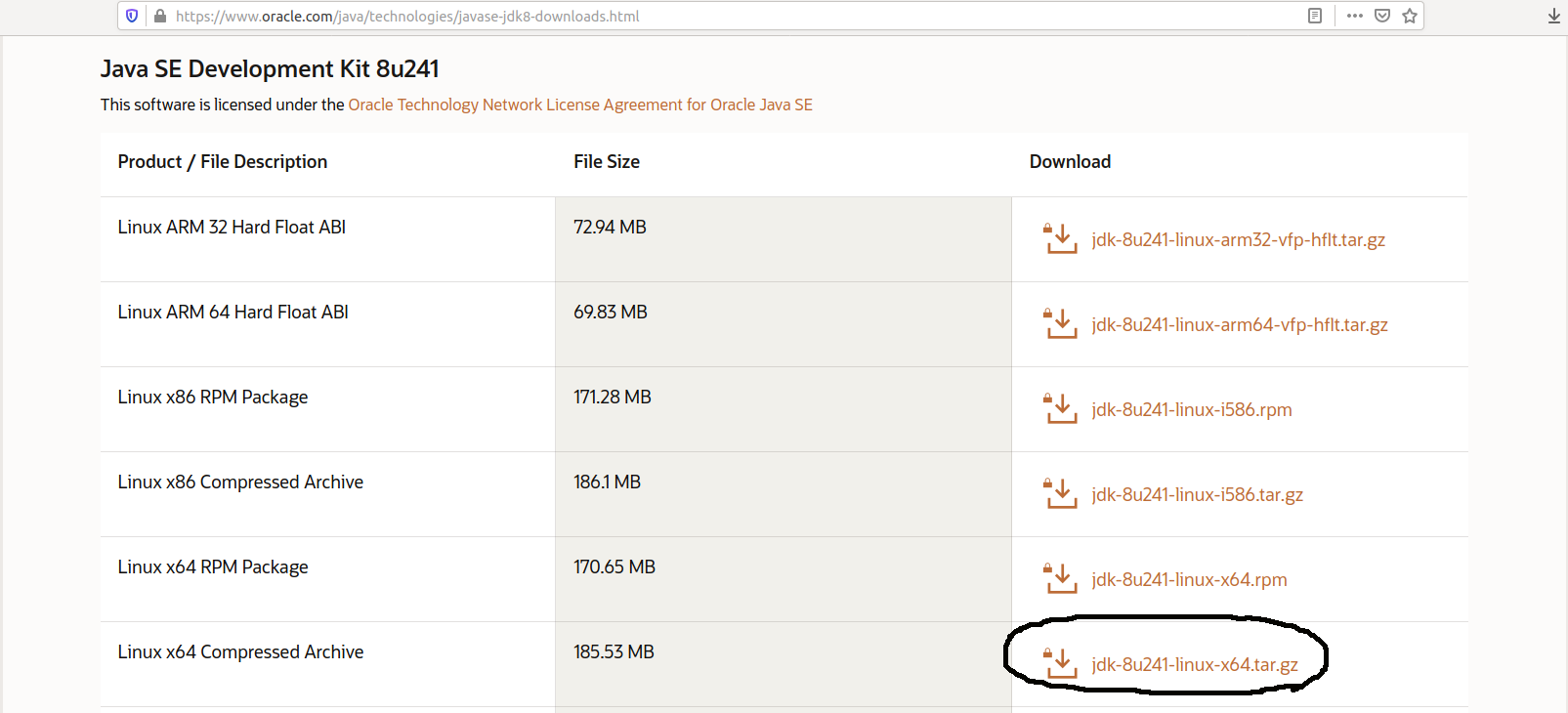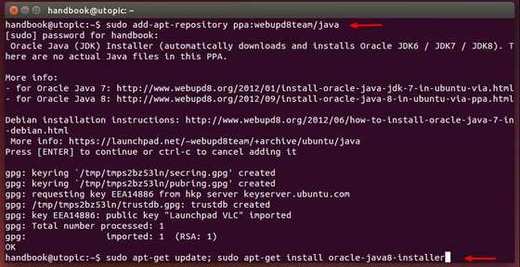

- #JDK 8 FOR UBUNTU INSTALL#
- #JDK 8 FOR UBUNTU UPDATE#
- #JDK 8 FOR UBUNTU CODE#
- #JDK 8 FOR UBUNTU LICENSE#
- #JDK 8 FOR UBUNTU DOWNLOAD#
Java 8 is a 2014 update to Java that includes security updates, performance updates, and new programming enhancements.

You will be logged into the root account. Java HotSpot(TM) 64-Bit Server VM (build 25. This guide assumes you have a brand-new Ubuntu 14.04 VPS from Vultr, using root. Java(TM) SE Runtime Environment (build 1.8.0_291-b10) Check which version of the JDK your system is using: java -version.
#JDK 8 FOR UBUNTU INSTALL#
It should output the following: java version "1.8.0_291" How do I install java 1.8 on Linux Installing Open JDK 8 on Debian or Ubuntu Systems. Let the system know where JRE is installed: sudo update-alternatives -install "/usr/bin/java" "java" "/usr/local/java/jre1.8.0_291/bin/java" 1Īfter that’s done, check the installation by running: java -version To save space, delete the tarball by running: sudo rm jre-8u291-linux-圆4.tar.gz Unpack the tarball: sudo tar zxvf jre-8u291-linux-圆4.tar.gz Go into the install directory: cd /usr/local/java Move the JRE binaries into the directory: sudo mv jre-8u291-linux-圆4.tar.gz /usr/local/java InstallingĬreate a directory to install JRE in with: sudo mkdir /usr/local/java Oracle does not currently offer JRE packages for Java 11 or above from their website so, for this tutorial, we will use the Oracle HotSpot JRE version to be 8u291 (Java 8, update 291).
#JDK 8 FOR UBUNTU DOWNLOAD#
An Oracle account is needed to download the Oracle HotSpot JRE. tar.gz (tarball) by heading over to their website. Installing Oracle HotSpot JRE Downloading the Oracle HotSpot JRE binariesĭownload JRE binaries in. In the next step we’ll install Oracle HotSpot JRE. (Although the output may change in the future as new Java versions are promoted to LTS status, or the current LTS version receives updates.) OpenJDK 64-Bit Server VM (build 11.0.11+9-Ubuntu-0ubuntu2, mixed mode) By default Ubuntu 18.04 comes with Java 11.

#JDK 8 FOR UBUNTU LICENSE#
OpenJDK Runtime Environment (build 11.0.11+9-Ubuntu-0ubuntu2) The Oracle JDK License has changed for releases starting April 16, 2019, most commonly used PPA are DISCONTINUED. It should output the following: openjdk version "11.0.11" We can check if OpenJDK JRE was properly installed by running: java -version To install the OpenJDK JRE, we run: sudo apt install default-jre (Alternatively, you may opt to use a specific Java version, using for example the openjdk-11-jre package as updates are released for that version of the Java Virtual Machine, that packages will be updated, allowing you to stick to the latest and greatest update of one specific version of the Java language.) The default-jre is an excellent choice for most situations, thanks to the outstanding track of backwards compatibility of the Java Virtual Machine. Ubuntu offers the default-jre package, which is regularly updated to ship the latest version of the current OpenJDK JRE in Long Term Support (LTS). Moreover, the non LTS versions of Java are bringing a steady stream of innovation into the language, and also see some adoption. Nowadays, Java 11 is the current Long Term Support (LTS) version, but Java 8 is still widely used. Wait for the system to finish the installation then move to the second step. With new versions of Java released every 6 months, there are multiple versions available for use. By default, the Oracle JDK can not be installed via package managers.Previous step Next step 2.
#JDK 8 FOR UBUNTU CODE#
Unlike the OpenJDK, Oracle JDK is not released under License GPL v2 but Oracle Binary Code License Agreement. OpenJDK 64-Bit Server VM (build 25.252-b09, mixed mode) Install Oracle Java 11 Verifying the java version by typing command 'java -version'. For example, if you want to install Java version 8 on Ubuntu 20.04, run the following command: $ sudo apt install openjdk-8-jdk In some cases, your applications require the previous version of Java in order to be run. OpenJDK 64-Bit Server VM (build 11.0.8+10-post-Ubuntu-0ubuntu120.04, mixed mode, sharing) Install OpenJDK 8 OpenJDK Runtime Environment (build 11.0.8+10-post-Ubuntu-0ubuntu120.04) To install OpenJDK 11, run the following command: $ sudo apt install openjdk-11-jdkĬhecking the java version: $ java -version It is the default development and runtime environment of Java on Ubuntu 20.04.

At the time of this writing, Java 11 is the latest LTS version.


 0 kommentar(er)
0 kommentar(er)
